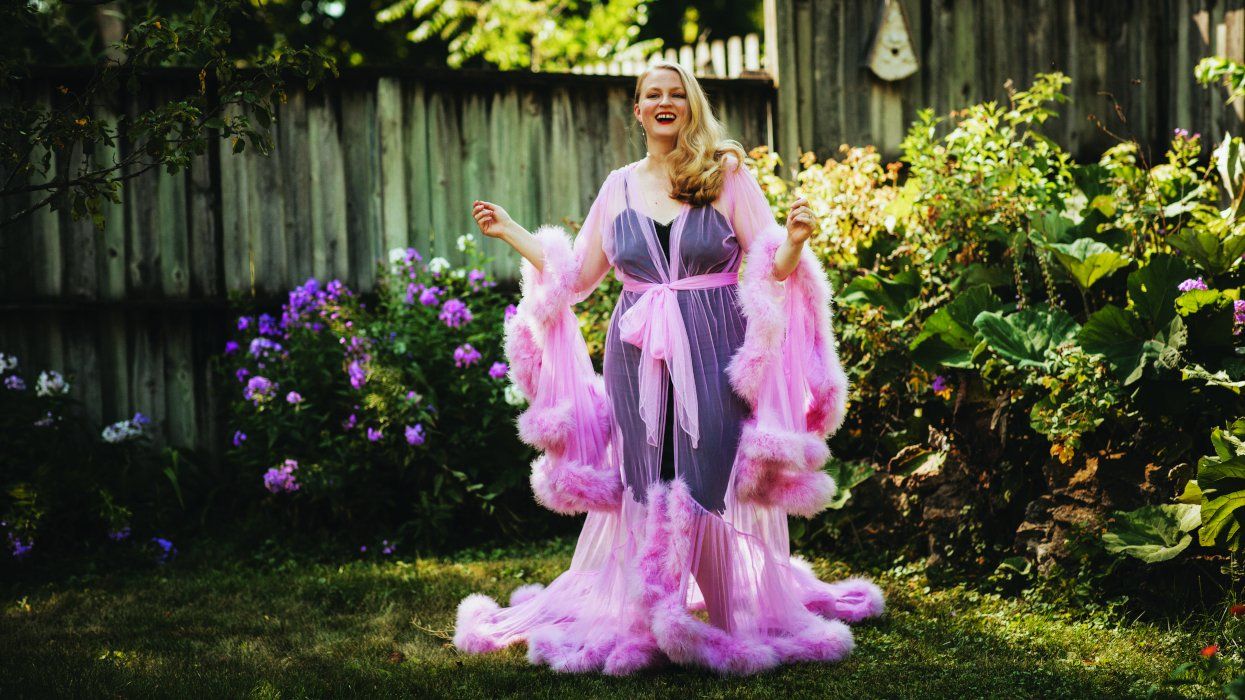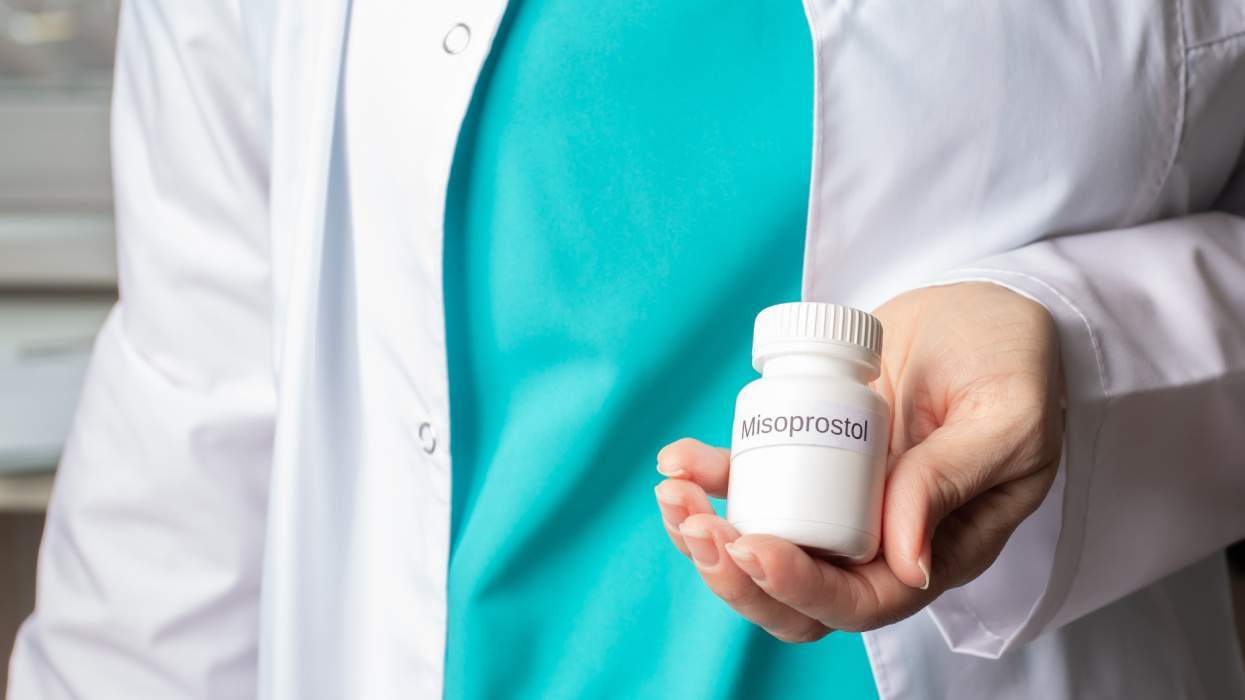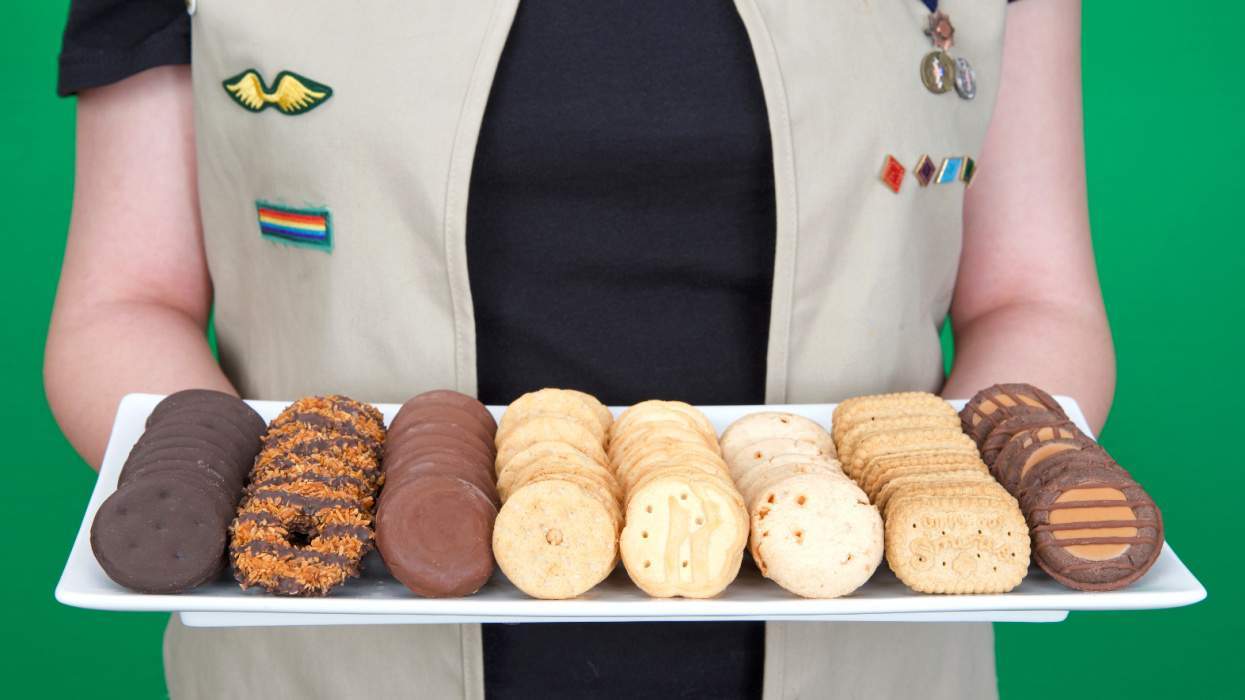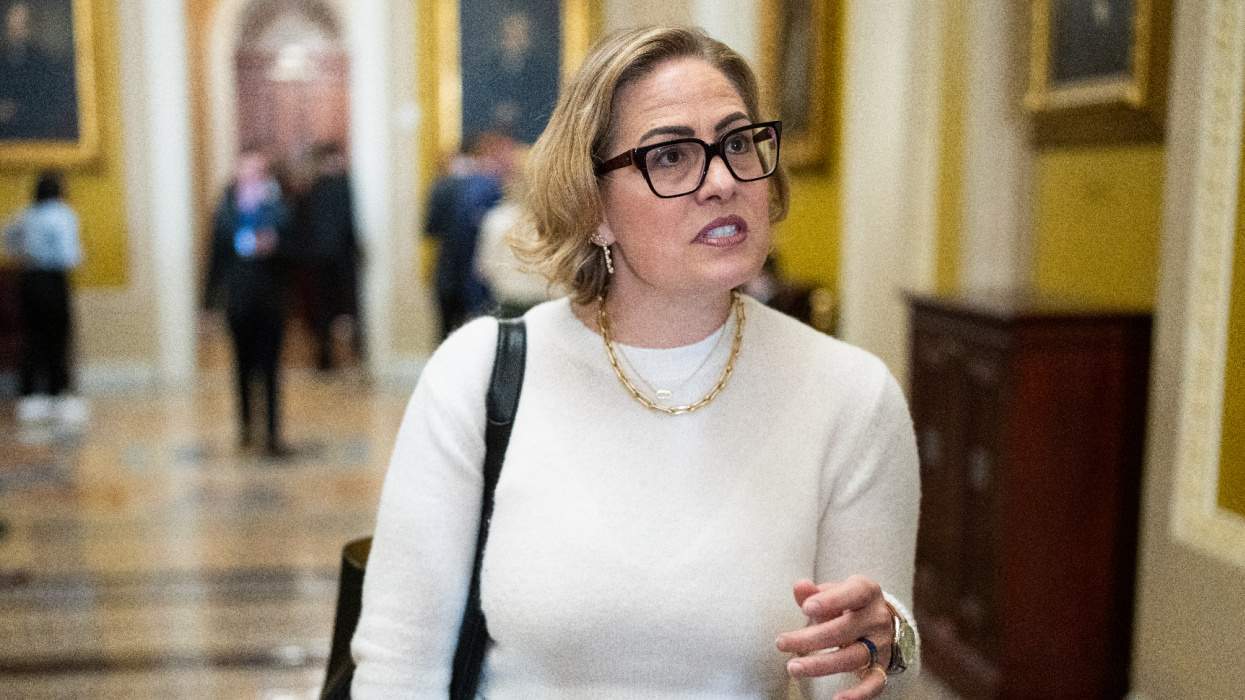After spending a year of her life writing about America’s last remaining lesbian bars, Krista Burton is more excited than ever about their future.
In the punnily titled travelography Moby Dyke, Burton visited 20 lesbian nightclubs across the U.S., and her trip spanned everything from iconic bars like Henrietta Hudson in New York City to lesser-known venues like Oklahoma City’s two lesbian bars: Frankie’s and Alibi’s. Despite media coverage chronicling the sadly routine closure of lesbian spaces over the past few decades, many of these spaces were thriving, such as Sue Ellen’s, a Dallas club that Burton describes in the book as a “lesbian Studio 54.”
“Every inch of space around the stainless steel bar was mobbed, people clustered up and packs of queers sitting, queers leaning, queers ordering shots, a masc bartender pouring drinks with the fluid movements of an Olympic athlete and a barback hauling in bottles, sweating profusely,” she writes.
Burton knew that Moby Dyke would be out of date the moment it went to print because during her travels, she would hear about other lesbian nightclubs that were either reopening or opening for the first time, including Nobody’s Daughter, a Chicago cocktail lounge that gets a shout-out in the book’s epilogue. She believes that the success of this new wave of businesses is due, in part, to the irreplaceability of lesbian bars.
“These spaces are magical and the feeling that you get inside them is unlike anywhere else,” she says by phone. “They are sometimes the only place around for 400 miles that you can go and find other people like you. Where else are you gonna go for dildo bingo, or to just feel comfortable in a space designed specifically for you?”
In an hour-long interview with The Advocate, Burton says she is hopeful that a new generation of businesses — from Babes of Carytown in Richmond, Va., to The Back Door in Bloomington, Ind. — redefine what lesbian bars can be and rewrite the false narrative that these spaces are doomed to fail.
This conversation has been edited and condensed for clarity.
Queer bars are spaces where a lot of us figure ourselves out and try new identities and make mistakes. What did you learn about yourself going to queer bars in your early 20s?
Number one, I learned that these are the places I want to be in, and number two, I learned what it feels like to actually have community; what it feels like to hit on someone and have them utterly reject you and then be OK with that and keep going to the same place; what it feels like to see an ex in a space that you once thought of as yours and now have to share. I learned how to move through queer society through those spaces.
What do queer spaces — lesbian spaces more specifically — offer that you just can’t get other places?
What makes them so irreplaceable is being in a room with that many people who have, if not exactly a shared experience, a baseline of understanding of where you’re coming from. Just being in a room where every single person there is a solid guess that they probably didn’t vote for Trump and they also think of your human rights as valid, it’s a weight coming off your shoulders. Not everyone is safe in lesbian bars — or in public spaces in general — but it feels safer in there.
I’m still constantly coming out to people, constantly helping other people to feel comfortable with me. I don’t have to do that in queer spaces. As much as you don’t have to fight for yourself, you also don’t have to explain yourself either. I don’t have to be the first lesbian someone’s ever met. I can’t tell you the number of people who have told me in different workspaces that I am their first lesbian friend. And I’m like, “Am I, though?”
During COVID, none of us were able to access these spaces for so long. How did it feel to be able to return?
It was very, very startling at first. Traveling for this book was so interesting because — I think I joke about it in the book — I was watching COVID cases like a stock trader, every day clicking into The New York Times website, zeroing in on where I was going, being like, “Oh, my God.” Every place had different rules. At first, I was quite nervous. One of the earlier bars that I did was Henrietta Hudson [in New York], and it was my first experience with there being a dance party after things had opened up again. They had security at the door, and everyone’s vax cards had been checked. But I wasn’t ready. It was when everyone was starting to talk about breakthrough cases, and I was very nervous at first to be in those spaces. As time went on, I became less nervous about it. Going into the spaces and seeing all those people just felt like another big shock to the system. We’d all been in our little apartments and houses for years. It felt wild to be able to go out and see other people’s faces, to be near enough that maybe our backs were touching.
The continuing mystery over the hours that lesbian spaces are open is interesting; it played a huge role in your own difficulty getting to these bars. Why do you think that basic information is elusive?
I do not know the answer to this. It would have changed my life. It would have saved me thousands of dollars if the lesbian bars updated their hours, [if] they would actually put that into Google and then actually stay committed to those hours. So many of the bars are surviving by such a thin margin that they don’t have the money. They don’t have a person that they’re designating to do all that stuff, to make sure their Facebook hours matches Google. They are extraordinarily busy. It’s one of the reasons that I could not get a hold of some of the bar owners to even interview them for the book. Some of the interviews that I got were just luck. They just happened to be at the bar when I was there. Sue Ellen’s [in Dallas] was packed. Both nights that I was there [it was] shoulder-to-shoulder. You could not move without touching someone. I was stunned. I could not imagine that this existed for us. I have been to gay bars like that, of course, but never a lesbian bar.
So let's say I'm a lesbian entrepreneur and I'm thinking about opening my own queer bar. Based on the research you've done, what should I consider when trying to create a sustainable space that will thrive for many, many years to come?
First of all, you need to have a funny or punny or dirty name that people will remember. I think of The Bush in Bushwick. You want your bar to be a little smaller than you’d like, because nobody likes to dance on an empty dance floor. It freaks people out. Everybody likes to feel they’re in the place where it’s like, “This is it. This is the place.” You need really good cocktails that have funny or filthy names. The dirtier, the better. Have merch that is, again, very dirty. Think about The Bush. They are going to have the best merch, because their name is so good. You need all of your staff to go to de-escalation training. And historically, it’s much easier to keep your bar open if you own the space. That’s a big ask, especially if you’re in a larger city. Get a lot of backers, hit up all your rich gay friends, and try to do some serious fundraising. It protects you against landlords who want to put condos there or the fact that everyone else's rent in the neighborhood has gone up 200%. If you own the space, that does not happen. You can continue to be a slightly sticky-floored little dive if you want to be. Also I think all bars need a mocktail list right next to their regular drink menu. Bars are such a big part of queer community, but not everybody drinks.
You mentioned throughout the book that you have an uneasy relationship with queer spaces sometimes, as a queer person who's not always read as queer. And conversely, you also wrote about how much it meant to you to feel really genuinely included. What do you think bars can do to make people feel welcome?
It's a little cheesy, but I think you need to have some kind of obvious sign up that says that clearly by right by the bar or right as a front that says, “Everyone Welcome, Just Don't Be a Jerk.” I’m thinking of Gossip Grill. They just have a giant neon sign that says, “Hello Beautiful.” Maybe even you want to post your rules up. As You Are has their rules posted literally all over, things like “Consent is sexy (here it’s mandatory).” I know we’re not children, but I do think it's a welcoming gesture, so you understand the rules of the space. They could commit to their bartenders helping the next person, instead of whomever the bartender feels like helping. Have the people who are working in the space greet you. I’m dating myself, but I used to work at the Gap. When you walked in, you had to greet everyone within six seconds. It doesn’t have to be like that, but a friendly tone goes a really long way.
It also has a lot to do with the patrons. We could acknowledge one another. If we as a community tried to do that, even just a little, it could go a really long way. I remember at Wildrose in Seattle, this random person came up to me and said, “Hey, do you want to join us?” I was so floored because I've been going out for 20 years, it’s never happened to me. Never. It’s a nice thing to keep in mind: We all want to feel included, but then once we’re all in our own little bubbles, we’re not interested in including other people. Sometimes it would help people so much, and it costs you so little.
So many lesbian spaces are opening right now — or reopening — to where you’ve joked about the book being out of date by the time it went to print. Why do you think we're witnessing such a resurgence of lesbian bars in this moment? And what do you perhaps see them doing differently than others have in the past?
We’re seeing a resurgence, in part, because of all those articles that I got so tired of seeing, talking about how all the lesbian bars were dying. Enough articles were written that people got pissed. They were like, “You know what? We’re going to open one. They're important.” The inclusive vibe is a new thing, and it’s really, really great. That’s the way we’re going to go in the future. I also am seeing a little bit of, dare I say, modern decor happening, which is brand new. I have not seen a slick space before I started doing this book. I'm thinking of Henrietta Hudson’s remodel. It used to be dark and sticky, and now it is very mid-century modern. Every inch of it could be in a photograph. It’s clearly well designed and beautiful. The people that are starting to do that, I think, they’re going to do well.
I feel tied to queer predecessors through bar spaces. Our history, so much of it has happened in the bars. Having that link feels important, especially when you don’t have a ton of role models. These spaces are magical and the feeling that you get inside them is unlike anywhere else. They are sometimes the only place around for 400 miles that you can go and find other people like you. Where else are you gonna go for dildo bingo — or to just feel comfortable in a space designed specifically for you? Sure, we can go a lot of places, but where do you want to go? I know I want to go to a lesbian bar.














Charlie Kirk DID say stoning gay people was the 'perfect law' — and these other heinous quotes
These are some of his worst comments about LGBTQ+ people made by Charlie Kirk.